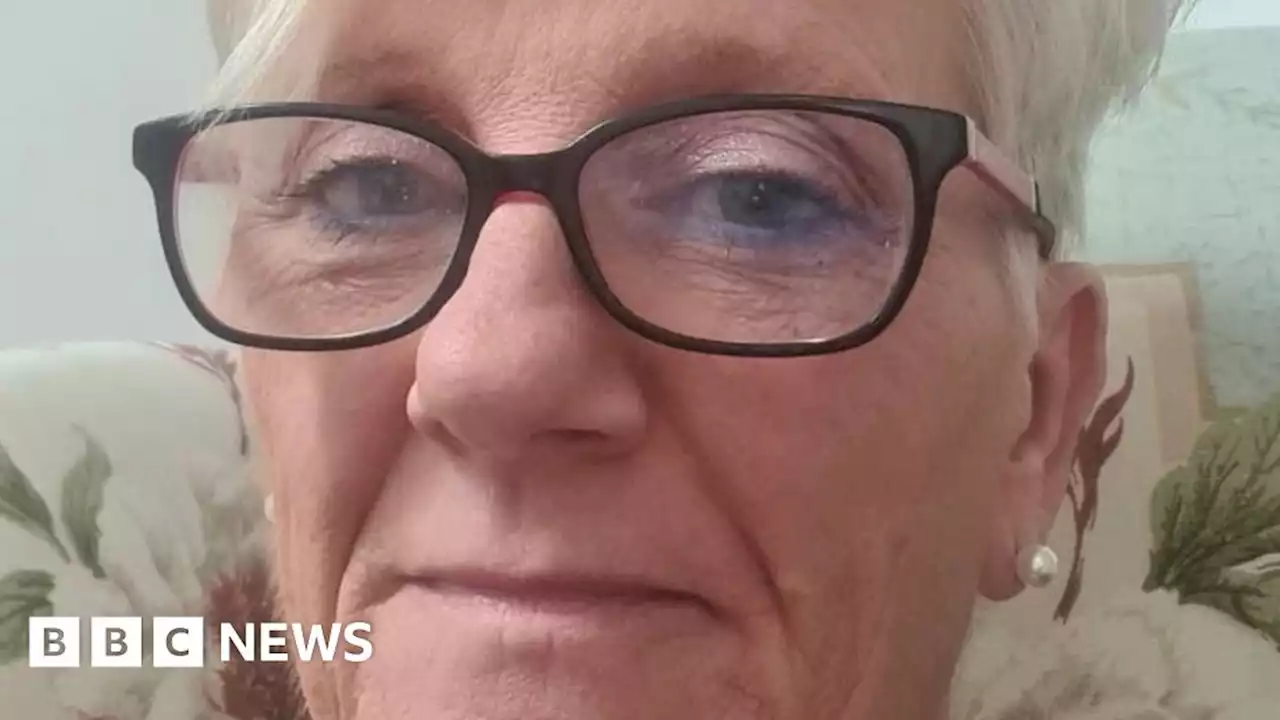Sharon Applin had all the organs in her pelvis removed and wants her experience to aid other patients.
A cancer patient who had to have all the organs within her pelvis removed is at the centre of a research project designed to improve future treatments.
Ms Applin, who was previously treated successfully for a skin cancer in 2020, started experiencing bleeding, diarrhoea and severe pain last year. "[It was] explained very clearly that without major surgery I had only six months to a year to live," Ms Applin said. "I need to make sure I have my stoma bags stocked up just in case of an emergency and a change of clothes in case of any leaks... this is a mental strain all the time and has changed my life.""Being involved has helped me come to terms with what I have had done, what I have been through, and to understand how pelvic exenteration is done," she said.
United Kingdom Latest News, United Kingdom Headlines
Similar News:You can also read news stories similar to this one that we have collected from other news sources.
 'We need to normalise conversations about cancer and life after cancer'Mum-of-three Tracey is on a mission to help improve conversations about cancer after being treated for womb cancer
'We need to normalise conversations about cancer and life after cancer'Mum-of-three Tracey is on a mission to help improve conversations about cancer after being treated for womb cancer
Read more »
 Trajectory of fear of cancer recurrence levels six to 18 months post-breast cancer diagnosisResearchers examined the predictors of fear of cancer recurrence (FCR) and its trajectory among breast cancer (BC) patients.
Trajectory of fear of cancer recurrence levels six to 18 months post-breast cancer diagnosisResearchers examined the predictors of fear of cancer recurrence (FCR) and its trajectory among breast cancer (BC) patients.
Read more »
 Researchers discover possible new treatment for triple-negative breast cancerZachary Schug, Ph.D., assistant professor in the Molecular and Cellular Oncogenesis Program of the Ellen and Ronald Caplan Cancer Center at The Wistar Institute, has published a new paper in the journal Nature Cancer. Schug's paper, titled 'Acetate acts as a metabolic immunomodulator by bolstering T-cell effector function and potentiating antitumor immunity in breast cancer,' demonstrates a double-acting mechanism for fighting a particularly aggressive, difficult-to-treat form of breast cancer. Schug's research shows how silencing a certain gene, ACSS2, may improve existing treatments for patients.
Researchers discover possible new treatment for triple-negative breast cancerZachary Schug, Ph.D., assistant professor in the Molecular and Cellular Oncogenesis Program of the Ellen and Ronald Caplan Cancer Center at The Wistar Institute, has published a new paper in the journal Nature Cancer. Schug's paper, titled 'Acetate acts as a metabolic immunomodulator by bolstering T-cell effector function and potentiating antitumor immunity in breast cancer,' demonstrates a double-acting mechanism for fighting a particularly aggressive, difficult-to-treat form of breast cancer. Schug's research shows how silencing a certain gene, ACSS2, may improve existing treatments for patients.
Read more »
 New CAR T cell therapy approach minimizes severe side effectsIn recent years, cancer researchers have hailed the arrival of chimeric antigen receptor T cell (CAR T) therapy, which has delivered promising results, transforming the fight against various forms of cancer. The process involves modifying patients' T-cells to target cancer cells, resulting in remarkable success rates for previously intractable forms of cancer.
New CAR T cell therapy approach minimizes severe side effectsIn recent years, cancer researchers have hailed the arrival of chimeric antigen receptor T cell (CAR T) therapy, which has delivered promising results, transforming the fight against various forms of cancer. The process involves modifying patients' T-cells to target cancer cells, resulting in remarkable success rates for previously intractable forms of cancer.
Read more »
